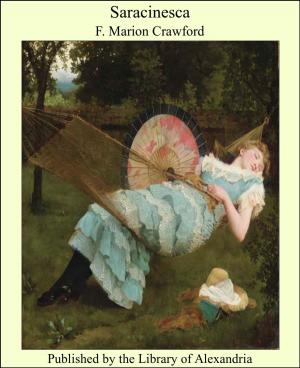The Way of a Virgin: Being Excerpts from Rare, Curious and Diverting Books
Nonfiction, Religion & Spirituality, New Age, History, Fiction & Literature| Author: | L. Brovan & C. Brovan | ISBN: | 9781465606952 |
| Publisher: | Library of Alexandria | Publication: | March 8, 2015 |
| Imprint: | Language: | English |
| Author: | L. Brovan & C. Brovan |
| ISBN: | 9781465606952 |
| Publisher: | Library of Alexandria |
| Publication: | March 8, 2015 |
| Imprint: | |
| Language: | English |
In Europe, young girls who are not very virtuous, and who have studied all the various forms of flirtation, are most generally passed off as virgins when they marry. Even when it does not really exist, there are many ways by which a virginity—which perhaps has been sold over and over again by expert and clever procuresses—can be simulated. A little time before going to the nuptial bed, the girl inserts into her vagina a few drops of pigeon's blood; or in some cases she selects for her wedding day the last day of menstruation. A sponge, skillfully placed, allows the blood to flow at the moment of the catastrophe, when a sudden 'Oh!' announces to the unsuspecting husband that the temple has been violated for the first time, and that the veil of the sanctum sanctorum has really been rent by him. Add also to these methods injections so astringent that, at the required time, they will give to a prostitute, whose gap has been widened by a thousand customers, a tightness greater than that of a real virgin. The more one examines the question, the more one is convinced that virginity or chastity has come to be regarded as a spiritual and moral asset only in civilised, or comparatively civilised, society. "In considering the moral quality of chastitiy among savages," writes Havelock Ellis (Studies in the Psychology of Sex, vol. 6, p. 147), "we must carefully separate that chastity which among semiprimitive peoples is exclusively imposed upon women. This has no moral quality whatever, for it is not exercised as a useful discipline, but merely enforced in order to heigthen the economic and erotic value of women. "Many authorities believe that the regard for women as property furnishes the true reason for the widespread insistence on virginity in brides. Thus A. B. Ellis, speaking of the West Coast of Africa (Yoruha Speaking Peoples, pp. 183 et seq.), says that girls of good class are bethroded as mere children, and are carefully guarded from men, while girls of lower class are seldom bethroded, and may lead any life they choose." Virginity in woman, it seems, has been set on a pedestal unsupported by history, science, or investigation. It is obviously the outcome of man's desire, when he buys or acquires, to obtain unsoiled goods. Comes a time, however, when the value of these so-called unsoiled goods grows questionable. Something virgin, in terms of common sense, is not necessarily something valuable; here enters the thinking, and, ultimately, the erotic, element. Let a man fall to asking why he demands virginity, and he will speedily begin to realise that it is the last thing he requires. Virginity spells ignorance, awkwardness and obstacles; maturity means understanding and co-operation. Thus, by easy stages, we reach the conclusion, mentioned by Havelock Ellis and quoted above, that for most men, whether they realise it or not, the love-wise woman has a greater erotic value than the virgin.[14] Quoting Westermarck (History of Human Marriage), he goes on to refer to the fact that the seduction of an unmarried girl "is chiefly, if not exclusively, regarded as an offence against the parents or family of the girl," and there is no indication that it is ever held by savages that any wrong has been done to the woman herself.
In Europe, young girls who are not very virtuous, and who have studied all the various forms of flirtation, are most generally passed off as virgins when they marry. Even when it does not really exist, there are many ways by which a virginity—which perhaps has been sold over and over again by expert and clever procuresses—can be simulated. A little time before going to the nuptial bed, the girl inserts into her vagina a few drops of pigeon's blood; or in some cases she selects for her wedding day the last day of menstruation. A sponge, skillfully placed, allows the blood to flow at the moment of the catastrophe, when a sudden 'Oh!' announces to the unsuspecting husband that the temple has been violated for the first time, and that the veil of the sanctum sanctorum has really been rent by him. Add also to these methods injections so astringent that, at the required time, they will give to a prostitute, whose gap has been widened by a thousand customers, a tightness greater than that of a real virgin. The more one examines the question, the more one is convinced that virginity or chastity has come to be regarded as a spiritual and moral asset only in civilised, or comparatively civilised, society. "In considering the moral quality of chastitiy among savages," writes Havelock Ellis (Studies in the Psychology of Sex, vol. 6, p. 147), "we must carefully separate that chastity which among semiprimitive peoples is exclusively imposed upon women. This has no moral quality whatever, for it is not exercised as a useful discipline, but merely enforced in order to heigthen the economic and erotic value of women. "Many authorities believe that the regard for women as property furnishes the true reason for the widespread insistence on virginity in brides. Thus A. B. Ellis, speaking of the West Coast of Africa (Yoruha Speaking Peoples, pp. 183 et seq.), says that girls of good class are bethroded as mere children, and are carefully guarded from men, while girls of lower class are seldom bethroded, and may lead any life they choose." Virginity in woman, it seems, has been set on a pedestal unsupported by history, science, or investigation. It is obviously the outcome of man's desire, when he buys or acquires, to obtain unsoiled goods. Comes a time, however, when the value of these so-called unsoiled goods grows questionable. Something virgin, in terms of common sense, is not necessarily something valuable; here enters the thinking, and, ultimately, the erotic, element. Let a man fall to asking why he demands virginity, and he will speedily begin to realise that it is the last thing he requires. Virginity spells ignorance, awkwardness and obstacles; maturity means understanding and co-operation. Thus, by easy stages, we reach the conclusion, mentioned by Havelock Ellis and quoted above, that for most men, whether they realise it or not, the love-wise woman has a greater erotic value than the virgin.[14] Quoting Westermarck (History of Human Marriage), he goes on to refer to the fact that the seduction of an unmarried girl "is chiefly, if not exclusively, regarded as an offence against the parents or family of the girl," and there is no indication that it is ever held by savages that any wrong has been done to the woman herself.















